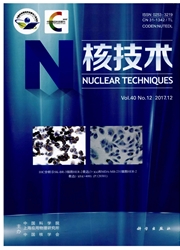

 中文摘要:
中文摘要:
通过检测受照射细胞及与其共培养旁细胞的损伤情况及p53抑制剂对其的影响,研究了肝癌细胞辐射敏感性及辐射诱导的旁效应与p53的关系。发现肝癌细胞的辐射敏感性与p53密切相关:野生型p53辐射敏感性最高,突变型的次之,缺失型的敏感性最低。同时,辐射诱导的旁效应与p53状态亦密切相关,仅野生型p53肝癌细胞(HepG2)对旁细胞(Chang氏肝细胞)具有旁效应,且未受照射旁细胞中产生的微核具有明显的剂量效应和时间效应;而突变型(PLC)和缺失型(Hep3B)的肝癌细胞几乎不能诱导辐射旁效应的产生。另外,p53抑制剂可显著抑制辐射旁效应的产生。
 英文摘要:
英文摘要:
The role of p53 in bystander responses on normal liver cells were investigated by co-culturing irradiated hepatoma cells with non-irradiated bystander Chang liver cells. It was found that radiosensitivity of the hepatoma cells was relative to p53. HepG2 cells with wtp53 had the highest radiosensitivity followed by PLC/PRF/5 cells with mtp53 and Hep3B cells with null-p53. The induction of bystander micronucleus (MN) was observed only in the Chang liver cells that had been co-cultured with HepG2 cells but not co-cultured with PLC/PRF/5 or Hep3B. Also, this bystander MN was relative to the irradiation dose and the cell co-culture rime. When the hepatoma cells were treated with pifithfin-α, a p53 inhibitor, their radiosensitivities were reduced, and the bystander effect was diminished. The results indicate that p53 could regulate not only the radiosensitivity but also the bystander response.
 同期刊论文项目
同期刊论文项目
 同项目期刊论文
同项目期刊论文
 Differential modulation of a radiation induced bystander effect in glioblastoma cells by pifithrin-α
Differential modulation of a radiation induced bystander effect in glioblastoma cells by pifithrin-α Cadmium-Induced Adaptive Response in Cells of Chinese Hamster Ovary Cell Lines with Varying DNA Repa
Cadmium-Induced Adaptive Response in Cells of Chinese Hamster Ovary Cell Lines with Varying DNA Repa Effect of gap junctional intercellular communication on radiation responses in neoplastic human cell
Effect of gap junctional intercellular communication on radiation responses in neoplastic human cell The role of nucleophosmin/B23 in radiation-induced chromosomal instability in human lymphoblastoid c
The role of nucleophosmin/B23 in radiation-induced chromosomal instability in human lymphoblastoid c Radiation-induced bystander effect mediated by cytochrome-c from a p53-dependent pathway on human he
Radiation-induced bystander effect mediated by cytochrome-c from a p53-dependent pathway on human he Differential modulation of a radiation-induced bystander effect in glioblastoma cells by pifithrin-a
Differential modulation of a radiation-induced bystander effect in glioblastoma cells by pifithrin-a 期刊信息
期刊信息
